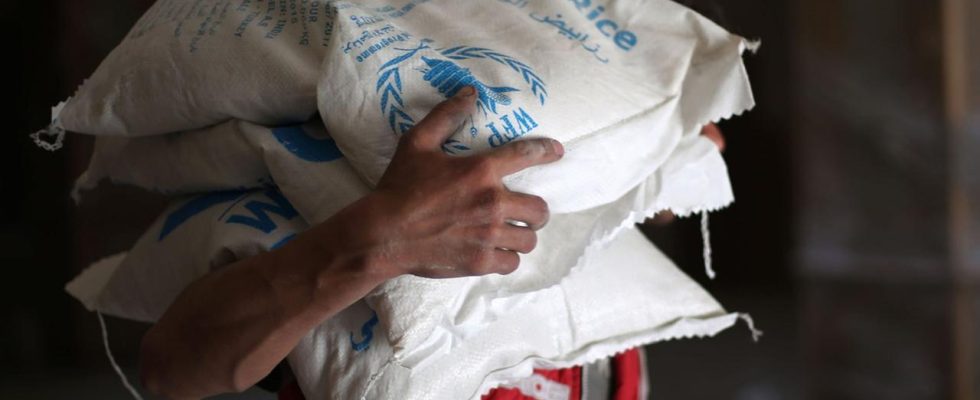After a blockade in the UN Security Council, Syria allowed the United Nations to deliver further humanitarian aid from Turkey to rebel-held areas of the civil war-torn country. According to Damascus, the commitment is valid for six months.
After the deadlocked negotiations in the UN Security Council, aid supplies can now be delivered to the Syrian rebel areas again via the Turkish-Syrian border crossing Bab al-Hawa. The Syrian government initially approved the use of the border crossing between the two countries for another six months.
“The government of the Syrian Arab Republic has taken the sovereign decision to grant permission for the United Nations and its specialized agencies to use the Bab al-Hawa crossing point,” Syrian ambassador to the UN Bassam Sabbach wrote in a letter to the most powerful UN official. body, the Security Council. UN spokesman Stéphane Dujarric said the letter from Syria would now be examined.
The Security Council struggled in vain to reach an agreement
An agreement by the UN Security Council that approved international aid deliveries for people in the Syrian rebel areas expired on Monday. For days, the committee had previously struggled in vain to reach an agreement. But the 15 members of the Security Council were unable to agree on an extension in time.
The reason for this was a veto by Russia in the Security Council against an extension for nine months. The members rejected a counter-proposal from Russia by a large majority. Among other things, it was about changes to Western sanctions against the government of Syria’s ruler Bashar al-Assad, as reported by the AFP news agency. Secretary General Antonio Guterres had campaigned for a twelve-month extension.
Syria sees sovereignty violated
The Security Council has had to approve the aid measures that have been running since 2014 because Syria does not agree to humanitarian operations in rebel areas. In order to implement a resolution, at least nine of the 15 members must agree. In addition, none of the five permanent members – Russia, China, the US, France and Great Britain – may veto.
Russia is one of the Syrian government’s closest allies. In recent years, ruler Assad has insisted on closing border crossings in order to regain influence over rebel-held parts of the country. The two countries see the UN deliveries as a violation of Syria’s sovereignty. Russia intervened militarily in the Syrian war in 2015.
Bab al-Hawa main border crossing
According to the UN, more than four million people in Syria are dependent on deliveries of food, water and medicine. According to the UN, 85 percent of all goods destined for the northwest go through the Turkish-Syrian border crossing Bab al-Hawa, which, according to the dpa news agency, was closed overnight from Monday to Tuesday. This is the only route through which UN aid can be delivered to the Syrian people without having to pass through areas controlled by Syrian government forces.
After the severe earthquakes in Syria and Turkey a few months ago, Assad temporarily opened two more border crossings to Turkey: Bab al-Salam and Al-Ra’ee are still open. However, Bab al-Hawa is much more important.

